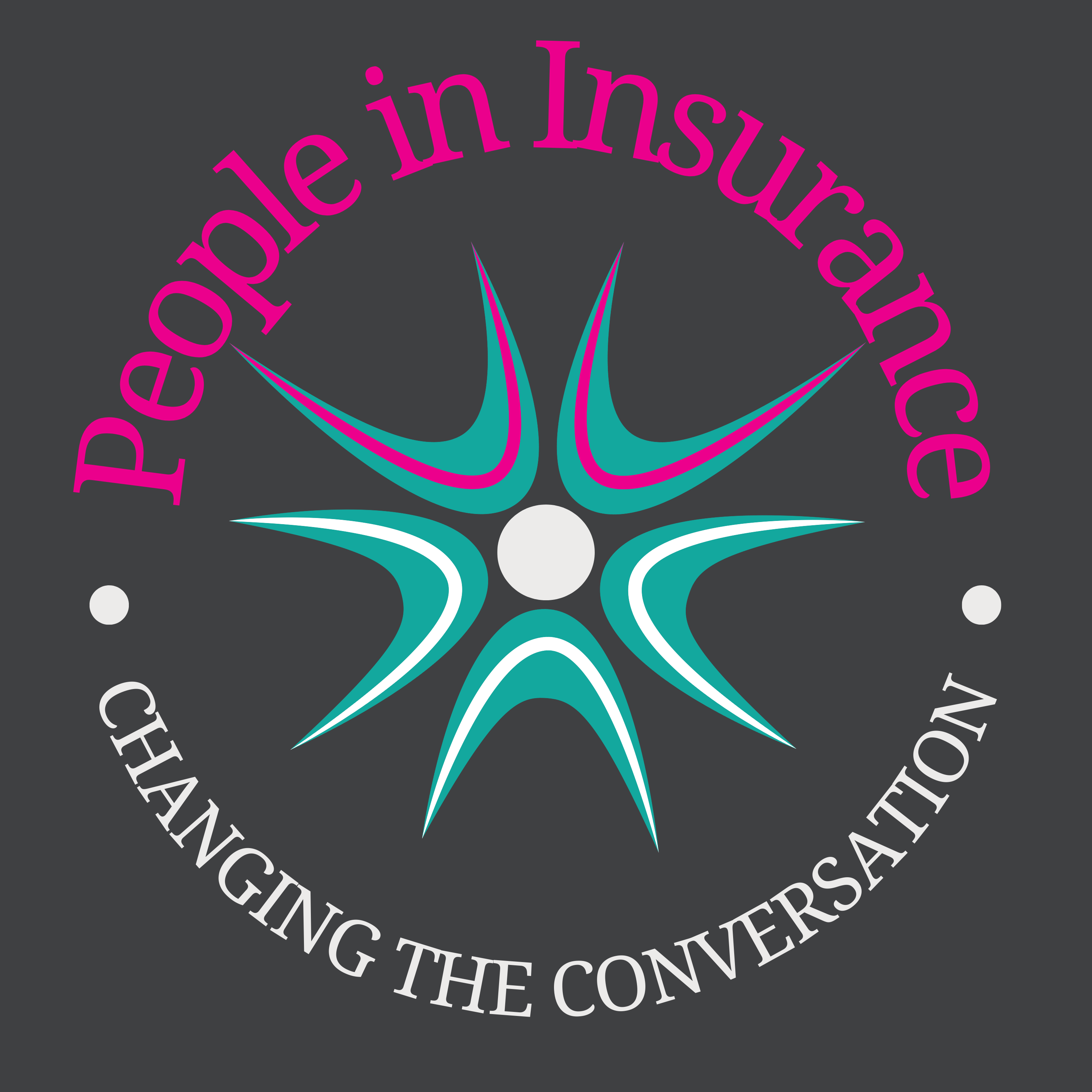
31.7K
Downloads
128
Episodes
Welcome to People in Insurance: Changing the Conversation Join us as we delve into the dynamic intersection of diversity, culture, and technological innovations within the insurance industry. Listen in as Host, Sarah Myerscough, Chief Ideas Officer at Macaii, sits down to talk with trailblazers, thought leaders, and innovators who are reshaping the very fabric of insurance. Here, we bring you stories that not only redefine the narrative but also offer a fresh perspective on the evolving landscape of insurance. From ground-breaking initiatives to transformative insights, we’re your trusted guide through the winds of change. Tune in to People in Insurance, brought to you by Macaii, and stay ahead of the curve in the ever-evolving world of insurance.
Welcome to People in Insurance: Changing the Conversation Join us as we delve into the dynamic intersection of diversity, culture, and technological innovations within the insurance industry. Listen in as Host, Sarah Myerscough, Chief Ideas Officer at Macaii, sits down to talk with trailblazers, thought leaders, and innovators who are reshaping the very fabric of insurance. Here, we bring you stories that not only redefine the narrative but also offer a fresh perspective on the evolving landscape of insurance. From ground-breaking initiatives to transformative insights, we’re your trusted guide through the winds of change. Tune in to People in Insurance, brought to you by Macaii, and stay ahead of the curve in the ever-evolving world of insurance.
Episodes
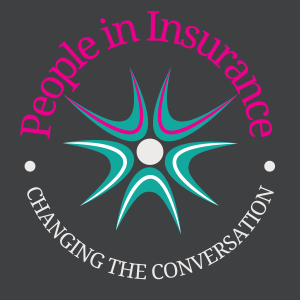
Sunday Dec 01, 2024
Sunday Dec 01, 2024
Why is it crucial to curate and maintain a good relationship with your software vendor?
How do you go about selecting the right vendor for your business, and when is the right time to jump ship to a new platform?
Is our industry’s rapid entanglement with AI necessarily fraught with danger, and how can we exploit it to drive efficiency and enhance customer’s buying experience?
As our access to and experimentation with data continues to fuel rapid changes to our industry’s broader infrastructure, it’s high time for many insurers, brokers and MGAs to adopt software to better manage their systems and products. This can feel like a minefield, with an ever-expanding array of Insurtech providers on the market, and with digital transformation projects frequently failing due to miscommunication between customers and software vendors. In this episode, we’re privileged to be speaking with Andre Symes, Group CEO of Genasys Technologies, about how to navigate these risks and curate a collaborative and long-lasting relationship with your chosen software provider. He describes the need for compromise in what will become a ‘corporate marriage’, and also explores the risks and opportunities that AI will present the insurance industry for years to come.
Quote of the Episode
“We need to start appreciating the fact that tomorrow's buyers are not buying insurance in the way that today's buyers are buying insurance… They don't own cars; they don't own homes. They just live in the gig. Unless we start shaping insurance to accommodate that, I think we're going to be disrupted, and we're not going to be disrupted internally. We're going to be disrupted from outside.”
Our industry’s current architecture is contingent on a vision of modern society that is quickly slipping away. With car ownership, house ownership and pet ownership all declining, the next generation of insurance customers will be seeking cover to accommodate for a lifestyle entirely different from that which our industry is currently equipped for. This is accentuated by the advent of new technologies that are certain to radically transform the way we conduct our daily lives; not least self-driving vehicles which already are capable of 0% accident rates. Our industry has always been reluctant to adopt change; but those companies, and indeed sectors which fail to heed the warnings on the horizon are sure to be left in the dust.
Key Takeaways
The technology that will reshape our future has already arrived. For the insurance market to remain sustainable, it must adapt to the advent of AI and incorporate it into our everyday practices. Genasys is already using AI to make its platforms more user-friendly. If its customers, in turn, wish to incorporate AI to enhance their own clients’ purchasing journey, Genasys can facilitate this via an API connection. It is clear that AI and software, more broadly, will be key to building the insurance industry of tomorrow.
However, software should always be an enabler, to allow businesses to function and provide the personal journey that will always remain front-and-centre of what we do as an industry. As such, when beginning a transformation project to adopt a new software for your business, you don’t want to end up stuck with a monolithic platform for the next several years that can’t evolve alongside you. Andre outlines two major steps to take before selecting a software vendor for your business. Firstly, he argues that you must meticulously interrogate the platform’s capability – via demonstrations, proof of concepts, and ideally, access to a digital sandbox. You need an in-depth understanding of what a platform is, and how it can be modified to suit your business’ needs. Secondly, it is also crucial to understand the capital structures of the platform provider. Is it sustainable in the long term – and will they exist for as long as you intend to use the platform?
Selecting a software provider is the first step in what will become, hopefully, a five-to-ten-year long relationship – a ‘corporate marriage’. As such, there must be a culture fit between both businesses before the engagement takes place. Is this vendor a partner willing to have an open conversation about their platform’s capabilities, and how it can (and cannot) be modified to suit your business? Furthermore, when engaging in initial discussions with vendors, you must remember that compromise on both sides will be both inevitable, and key to a sustainable and healthy business partnership.
Best Moments/Key Quotes
“I was at an event recently, and I was listening to a couple of reinsurers talking about the fact that the data that they receive is sometimes 18 months old. If you're working with data that is 18 months old, your modelling is going to be impacted on that. So, what we need to try and do as an industry is get the data to the providers as quickly as possible. Link the platforms up via APIs. Get that data across to the carriers in real time so they can understand what the exposure is, and can understand what the loss ratios are. That way, there’s higher confidence, and with higher confidence comes more capacity.”
“When you sign up for a platform, you're not doing it for a couple of years. You're doing it for hopefully 5 to 10 years. So that organization still needs to be around in ten years’ time. If they can't carry on raising at the valuations that the previous year raised, they're going to be ripe for acquisition in a couple of years.”
“Genasys currently has 30 customers. And every single one of those CEOs of those customers has direct phone access to me. They phone me up if they've got a problem, or if they want to potentially acquire another business [and see] if can we accommodate it. Having personal relationships with your customers is really important, and you can't do that if you have to scale exponentially. You can't have a CEO-to-CEO relationship with 150 customers. And that's what we want to be in the short term.”
‘Any CEO telling you that they've had a perfect implementation history is lying to you.’
“It's effectively a corporate marriage because, you're going to be partners, a vendor and customer, for ten years. If you want that to be a happy relationship, you have to concede on either side and find a middle ground on implementation, pricing area, functionality, et cetera.”
Resources
Genasys Technologies: https://www.genasystech.com/
About the Guest
Andre Symes is the Group CEO of Genasys Technologies, which develops bespoke end-to-end software platforms for insurers, MGAs, and brokers. During his thirteen years with the company, Andre has overseen its expansion into the UK and US insurance markets.
Andre’s LinkedIn Profile: https://www.linkedin.com/in/andre-symes/
About the Host
Sharon Brown is a Board Advisor to Macaii and Genasys Technologies. She is also a Board Director for the MGAA and CEO of Nutshell Consultancy, which helps business leaders to develop innovative and strategic product distribution. With over 30 years’ experience in the industry across a host of businesses and roles, Sharon is well-equipped to interrogate the major issues and ideas challenging our industry today.
Sharon’s LinkedIn Profile: https://www.linkedin.com/in/sharon-e-brown/
Website: www.macaii.co.uk

Sunday Nov 17, 2024
Sunday Nov 17, 2024
In this episode of 'People in Insurance,' host Sarah Myerscough sits down with Becky Glover from Yutree Insurance. Becky shares her unique journey from co-founding Elizabeth Rose Wines to becoming a Financial Director, navigating both the worlds of finance and entrepreneurship.
The conversation delves into her rapid career progression, balancing non-traditional educational paths, and the importance of leveraging social media and personal branding. Becky also offers insights on supporting women in the workplace and the significance of celebrating professional milestones with the same enthusiasm as personal life events.
Quote of the Episode
“You can have it all, but you can't do it all. And neither should we expect people to do it all.”
Key Takeaways
- "You can have it all, but you can't do it all." This powerful statement encapsulates Becky's philosophy on work-life balance, especially for women in the workplace. The importance of building robust support systems and delegating tasks both at work and in personal life.
- Becky's journey from leaving school at 17 without A-levels to becoming a Finance Director at 29 demonstrates that there are multiple routes to success. Becky advocates for apprenticeships, continuous learning, and proactively seeking opportunities.
- Technology and adaptability are crucial for business growth. Drawing from her experience in the tech sector, Becky highlights the importance of embracing technology, particularly in traditional industries like insurance. Becky highlights how technology and AI can improve efficiency, employee satisfaction, and overall business performance.
Key Quotes
“You can have all of that, but you won't do all of it yourself. So, start delegating some bits out, at work, if you get to a senior position, you're not expected to do that senior position at all. and do all of the roles underneath it. So why is it that in the home, we still expect ourselves to do the senior position and do everything underneath it that we used to have time for.”
“Always say to people, businesses are just a group of people hopefully doing the same thing in the same direction to grow that business and to make it more valuable. So, what are you as an individual bringing to the table? So, for young people, it should be amazing for them to go and get some work experience somewhere, doing something interesting for them.”
About the Guest
Becky Glover is the Finance Director at Yutree Insurance, and she is known for her rapid career progression and significant contributions to the finance sector. She left school at 17 to pursue a direct path into finance, completing her AAT and ACCA qualifications through an apprenticeship. By 29, she became a Finance Director, demonstrating her ambition and strategic learning. Becky advocates for diversity in finance, serving on various boards such as AAT and GENCFO, and actively promotes the use of technology in business operations.
LinkedIn profile - https://www.linkedin.com/in/beckygloverfmaatfcca/
Becky co-founded Elizabeth Rose Wines!!
Yutree Insurance is a specialist insurance broker and underwriting agency based in the UK. The company provides a range of insurance solutions tailored to the needs of businesses and individuals. They specialise in offering insurance products for commercial enterprises, including liability insurance, property insurance, motor fleet insurance, and professional indemnity insurance.
Yutree also operates as an underwriting agency, designing and distributing insurance products on behalf of insurers. This dual role allows them to offer bespoke insurance solutions tailored to their client's needs.
About the Host
Sarah Myerscough is the Chief Ideas Officer at Macaii, formerly Boston Tullis. She hosts/co-hosts several podcasts and is known for her knack in connecting with people. Sarah excels in bringing out the best for video, podcast, and live events, helping clients showcase the human side of their business.
Sarah is passionate about the evolving dynamics of the insurance industry and enjoys conversing with innovators, trailblazers, and long-term advocates of change.
Website: www.macaii.co.uk

Sunday Nov 03, 2024
Sunday Nov 03, 2024
In this episode of 'People in Insurance: changing the conversation,' Lucy Hodgson, a director at Eastwood Insurance Brokers, discusses her dual identities, her deep-rooted career in the insurance industry, and her commitment to community involvement.
Inspired by her father, Lucy's journey in insurance started early, and she now leverages her experience to mentor and lead, especially through her work with the Rotary Youth Leadership Awards (RYLA).
The conversation explores the importance of giving back, the evolving landscape of training and insurance, and the need for adapting to modern challenges while fostering young talent and the need for the insurance industry to innovate its training approaches to balance flexibility with effective skill development.
Quote of the Episode
“If you ask the right questions, or ask, just ask questions, sometimes it doesn't need to be the right questions, just ask questions. Have an interest in somebody and it's amazing what you'll find out. You can then cater for them individually. Ask questions and make sure you're really listening to the answers.”
Key Takeaways
- The importance of early exposure to the insurance industry: Lucy Hodgson's experience of visiting her father's workplace as a child and the impact it had on her career choice suggests a need for more initiatives to bring children into insurance workplaces and promote the industry as a career path.
- The power of leadership development programs: The Rotary Youth Leadership Awards (RYLA) program that Lucy directs demonstrates the significant impact structured leadership experiences can have on young people.
- Lucy discusses the challenges of training new insurance professionals in the post-COVID era of remote work. She highlights the importance of maintaining hands-on, interactive learning experiences and the value of in-person interactions for developing skills and confidence.
Key Quotes
“I fell into insurance and then they laugh. Well don't just laugh, say I fell into insurance, but this is my career, this is who I am, this is what I do, these are the people I meet. Talk about it, tell a story of being an insurance person.”
“I think over the next 10 years, technology is going to continue to, you know, move forward so, so quickly. I'm already feeling that I'm starting to get out of touch with some of it, to be honest. So, How I see the future is really, it's almost doesn't really matter what I think. I think it's about what do these young people think. We've got to give them the opportunity now to, to start having their say about things because the one thing I've noticed really is that they do think very, very differently.”
About the Guest
Lucy Hodgson, a director at Eastwood Insurance Brokers in Huddersfield, joined the company in 2006. Based in Huddersfield, she has significantly contributed to the firm's reputation for prioritising client-specific, independent insurance solutions.
Lucy has built a notable career in the insurance industry, inspired by her father, who introduced her to the field as a child. Her extensive experience is complemented by her community involvement, notably through her role as the Course Director for the Rotary Youth Leadership Awards (RYLA).
She is also a vocal advocate for brokers engaging in community initiatives, enriching their personal and professional lives.
https://eastwoodinsurancebrokers.co.uk/
About the Host
Sarah Myerscough is the Chief Ideas Officer at Macaii, formerly Boston Tullis. She hosts/co-hosts several podcasts and is known for her knack in connecting with people. Sarah excels in bringing out the best for video, podcast, and live events, helping clients showcase the human side of their business.
Sarah is passionate about the evolving dynamics of the insurance industry and enjoys conversing with innovators, trailblazers, and long-term advocates of change.
Website: www.macaii.co.uk

Sunday Oct 13, 2024
Sunday Oct 13, 2024
This podcast episode of 'People in Insurance, Changing the Conversation' Sharon Brown takes the role of host, with guests Richard Dudley, and Chris Park discussing the intersection of the insurance industry with dementia awareness and research efforts.
The conversation explores the mission of Insurance United Against Dementia (IUAD), initiated in 2017 to leverage industry collaboration for funding and awareness in partnership with the Alzheimer's Society. Key topics include an explanation of dementia and its impact, the importance of early diagnosis, and personal stories that highlight the challenges faced by individuals and families affected by the disease.
The discussion also touches on the insurance industry’s fundraising efforts, having raised nearly £10 million, and future goals with IUAD 2.0 to further support Alzheimer’s research institutes and public awareness. The podcast advocates for continued industry support, citing recent developments in treatments like Lecanemab and the need for increased awareness and investment in dementia research globally.
It encourages people to participate in initiatives such as the 'Insurance Day for Dementia' to sustain the momentum against this largest killer disease.
Quote of the Episode
"Research will beat dementia." - attributed to the associate director of research at the Alzheimer's Society
Key Takeaways
- Dementia is caused by diseases that physically damage the brain, with Alzheimer's disease being the most common cause.
- Early diagnosis of dementia is crucial for providing proper care, support, and potential treatment.
- The insurance industry, through IUAD, has raised nearly £10 million to support the Alzheimer's Society and dementia research.
- IUAD funds have supported the UK Dementia Research Institute and crucial services during the COVID-19 pandemic.
- The insurance industry is well-positioned to support dementia causes due to its collaborative nature and reach.
Key Quotes
“If you've met one person with dementia, you've met one person with dementia. And this program really shows that you've got people of very different ages, different backgrounds, different demographics, and showing different symptoms and signs of dementia.” – Chris Park
“People are dying from it, and I think that we need some education, some experiences shared on that dying process so it's not quite as scary for people when they have to watch their loved ones go through it.” – Sharon Brown
“it's the beginning of the end for dementia. The researchers in the field will learn from Lecanemab and they'll learn from these other trials, and we’ll get to a point where the treatments are going to be able to be administered more easily and will be more cost effective and will have also made more of a journey in diagnosis.” – Chris Park
“In fact, it's probably the biggest killer in the world. One in three people who are born today are going to develop these diseases: one form of dementia or another. And the amount of money and attention that is placed on trying to solve that challenge is ridiculously small when you compare it to some of the other bigger killers.” – Richard Dudley
About the Guests
Chris Park
Chris is the Development Board Lead at Alzheimer’s Society. Leading a small team that work closely with ten senior members of the Insurance industry – who have the objective to raise vital funds for Alzheimer’s Society projects and awareness of the impact of, and support for, people affected by dementia.
Chris and his team work with individuals and organisations from the wider industry under the leadership of the award-winning Insurance United Against Dementia (IUAD) campaign and senior level volunteer board members. Chris also works with senior figures in the sporting world, who have similar aims, ambitions and motivations to support the cause.
A passionate fundraiser and relationship manager, Chris has worked in the charitable sector for over ten years. Including over 6-years at NSPCC and a 3-year term acting as a Trustee for disability cycling charity, Wheels for Wellbeing. This time in the charitable sector following on from his roles within not-for-profit organisations within the sport for development, and inclusion, space.
Richard Dudley
Richard joins BMS In December 2024 as Group Broking Director after a long career at Aon, where he was most recently responsible for driving Aon’s customer focussed strategy with respect to the challenges and opportunities presented by climate change. Prior to this appointment Richard led Aon’s London Market wholesale and specialty insurance business, having spent the years before this in Aon Reinsurance. He has worked in the London market for his entire 30yr career.
He is also a working member of the Council of Lloyd’s. He previously served on the LIIBA Board, as Chair between 2020 and 2022, and as a member of the London Market Group board.
About IUAD
Since 2017, the Insurance United Against Dementia (IUAD) industry led campaign has raised over £9.6mn in partnership with Alzheimer’s Society. This incredible fundraising effort has provided funds to drive crucial support services to give help to people affected by dementia when they most need it, but also powered pioneering dementia research investments of Alzheimer’s Society, helping to provide hope for a future where dementia no longer devastates lives.
About the Guest Host
Sharon has over 30 years of insurance experience and a proven track record in creating and delivering insurance schemes and products, sales and marketing strategies, and robust business infrastructures. In a previous role as chief sales officer for a large independent Lloyd’s insurance broker, she developed original sales and distribution models for clearing banks, insurance companies, MGAs, and insurance brokers. Prior to this, she was a sales and marketing director. Latterly Sharon ran an MGA specialising in commercial After the Event dispute insurance. She executed a strategy to revitalise the business and the brand, redefine distribution channels and create new business opportunities. Sharon is currently working on some exciting projects with colleagues in the insurance industry.
Sharon has a particular interest in advancing inclusivity in the insurance industry by embracing diversity, specifically by inspiring females and promoting a multi-generational and multi-cultural workforce. Sharon was named as a woman of influence in 2018 by Insurance Business magazine and was nominated in three categories for the Insurance Times Women in Insurance Awards 2020: Insurance Woman of the Year, Role Model of the Year, and Trailblazer. In 2021, Sharon was named on the IB UK Elite Women list.
She is a passionate supporter of Alzheimer’s Society, a cause that is especially close to her heart. Sharon is a keen amateur horsewoman and regularly competes in local equestrian events. She has two adult children and a menagerie of animals.
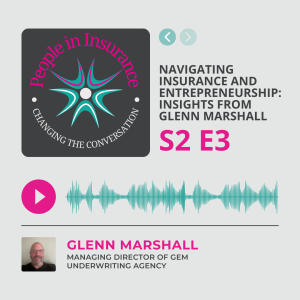
Sunday Oct 06, 2024
Sunday Oct 06, 2024
In this episode of 'People in insurance: Changing the Conversation,' Glenn Marshall discusses his extensive career in the insurance industry, starting from his early attempts to become an electrician to his eventual success in underwriting. Glenn recounts his journey through various companies and mergers, the challenges faced including significant claims, and the ultimate establishment of his own firm, Gem Underwriting Agency.
Highlighting the impact of relationships and technology in the insurance sector, Glenn shares his insights on entrepreneurship, the importance of sticking to one's expertise, and the satisfaction of working with family. The episode concludes with a special segment featuring the host's daughter, Isabel, who interviews Glenn about starting a business as a young entrepreneur.
Quote of the Episode
"Stick to what you know, basically, don't get too big for your boots."
Key Takeaways
- Persistence is crucial in entrepreneurship: Glenn faced multiple challenges and setbacks but continued pursuing his goal of running his own business.
- Relationships are vital in the insurance industry: Glenn's success has been built on long-standing relationships with a core group of brokers.
- The importance of adapting to technological changes: Glenn recognizes the need to incorporate AI at some point and rating engines to stay competitive and satisfy capital providers.
- Work culture is changing: The shift towards remote work presents challenges in team cohesion and training, especially for smaller companies.
- Personal touches can make a business unique: Glenn named his company after his parents' sweet shop and incorporated family elements into the logo.
Best Moment
- Glenn sharing the origin of his company name, "Gem Underwriting
“I haven't got a middle name, so it's definitely not my initials. I was born and grew up in a place called Tilbury, and my mum and dad ran a sweet shop called The Gem. I always said to my mum, if I ever own my own business, that's what I'm going to call it."
Key Quotes
"’John (Murphy) would always give you enough rope to hang yourself. Unfortunately I did that a couple of times, but each time he had my back, thankfully."
"You think you are reasonably good at what you do and to prove to yourself that you are I think you need to work for yourself, for your own satisfaction, your own mentality."
"It's best to try as many different facets of what you want to do as possible."
About the Guest
Glenn Marshall's career in the insurance industry began in 1986 at Michael Payne Syndicate 386 @ Lloyds, a renowned name in the insurance sector. Over the years, Glenn has held various senior roles in Lloyd’s liability syndicates and managing general agents (MGAs), accumulating extensive experience and expertise in the field. His journey is marked by a consistent rise through the ranks, reflecting his deep understanding of the insurance landscape and his ability to navigate its complexities effectively.
Throughout his career, Glenn has been involved in various facets of the insurance industry, gaining a wealth of knowledge and building a strong professional network. His roles in senior positions at different Lloyd's liability syndicates have given him a broad perspective on the market, allowing him to develop a keen insight into the needs and challenges faced by brokers and clients alike.
Website: www.gemuw.com
LinkedIn: Glenn Marshall | LinkedIn
About the Host
Sarah Myerscough is the Chief Ideas Officer at Macaii, formerly Boston Tullis. She hosts/co-hosts several podcasts and is known for her knack in connecting with people. Sarah excels in bringing out the best for video, podcast, and live events, helping clients showcase the human side of their business.
Sarah is passionate about the evolving dynamics of the insurance industry and enjoys conversing with innovators, trailblazers, and long-term advocates of change.
Website: www.macaii.co.uk
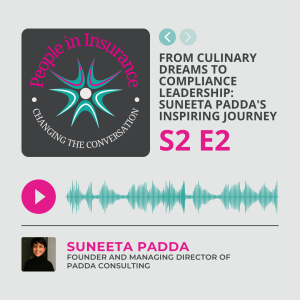
Sunday Sep 22, 2024
Sunday Sep 22, 2024
In this engaging episode of 'Changing the Conversation,' Sarah interviews Suneeta Padda, the founder and managing director of PADDA Consulting, a London-based regulatory compliance firm. Suneeta shares her remarkable journey from aspiring chef to an award-winning consultant, detailing her experiences with arranged marriage, raising children, career shifts, and her significant roles in the insurance industry.
She discusses the challenges and triumphs of starting her own business and highlights her dedication to promoting diversity and inclusion within the industry. Suneeta also provides valuable insights into balancing professional and personal life, drawing from her own story of resilience and determination.
Quote of the Episode
"I would not want a job because I'm an Asian woman. I would want the job because I'm the best for that job."
Key Takeaways
Suneeta Padda's journey from aspiring chef to successful compliance consultant offers valuable insights for both personal growth and organisational development. Her experiences highlight the importance of resilience, cultural awareness, and inclusive practices in today's business world. Some key takeaways from her interview include:
- Resilience can come from facing cultural and personal challenges from a young age
- Diversity without inclusion can lead to high attrition rates in organizations
- Family values can be successfully integrated into business practices
- Open communication and education are crucial for advancing diversity and inclusion in the workplace
- Starting a business can be lonely, but building a community of like-minded entrepreneurs can help
- Balancing work and personal life require creative solutions and efficient time management
These lessons from Suneeta's career underscore the need for a holistic approach to business leadership that considers cultural backgrounds, personal experiences, and diverse perspectives. By embracing these principles, individuals and firms can foster more inclusive, innovative, and successful environments.
Key Quotes
"I'm helping people who are coming into our insurance market and broader afield with those aspects of that integration into the workplace and it's okay to be yourself. It's okay. You hear a lot of firms saying, bring your whole self to work. How much of that is actually true?"
"I don't seem to be able to compartmentalise any of it, but both a blessing and a curse. But it really feels much more prevalent in the conversations I'm having in the cultures that businesses are trying to foster. And I think it's a really good thing."
"Diversity without inclusion would naturally lead to a high attrition rate. Because if you don't feel included somewhere, why would you want to stay?"
About the Guest
Suneeta Padda is the Managing Director and founder of Padda Consulting, a London-based firm specialising in regulatory compliance for the insurance industry.
Established in 2012, Padda Consulting serves diverse clients globally, including brokers and insurers. Suneeta is also committed to promoting diversity and inclusion in the industry and mentors’ women from non-traditional backgrounds.
They recently won the London Market Consultant/Advisory Supplier of the Year award.
You can find Suneeta on LinkedIn - https://www.linkedin.com/in/suneetapadda/
https://padda-consulting.co.uk/
About the Host
Sarah Myerscough is the Chief Ideas Officer at Macaii, formerly Boston Tullis. She hosts/co-hosts several podcasts and is known for her knack in connecting with people. Sarah excels in bringing out the best for video, podcast, and live events, helping clients showcase the human side of their business.
Sarah is passionate about the evolving dynamics of the insurance industry and enjoys conversing with innovators, trailblazers, and long-term advocates of change.
Website: www.macaii.co.uk
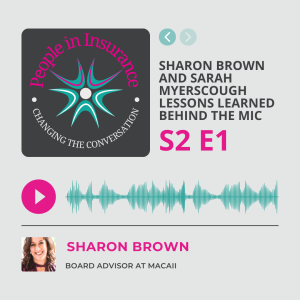
Sunday Sep 15, 2024
S2 E01: Sharon Brown and Sarah Myerscough Lessons Learned Behind the Mic
Sunday Sep 15, 2024
Sunday Sep 15, 2024
This episode of the podcast captures a candid and insightful conversation featuring Sarah Myerscough, Chief Ideas Officer at Macaii and Sharon Brown cert CII, Director MGAA, Director, Consultant, CEO, NED, Founder, and Angel Investor.
Sarah and Sharon switch roles in this unique episode where host becomes guest as Sharon is in the hot seat asking the questions! Sarah shares some humorous lessons from her past business ventures, including the importance of logistics planning and researching potential business names.
They delve into Sarah's journey in the insurance industry, including the foundation of Macaii (formerly Boston Tullis) with her father, overcoming personal challenges such as her stroke, and navigating turbulent times including family health crises and the COVID-19 pandemic. The conversation highlights the importance of diversity, culture, and tech innovations in insurance, along with the power of authentic storytelling through podcasts. They also discuss effective marketing and sales strategies, team dynamics, and the personal growth Sarah has experienced through her career and family life.
Quote of the Episode
"Every single business exists to sell something. Product service doesn't really matter, but you have to have something to sell, and there has to be someone who wants to buy it. Right? And telling that someone who wants to buy it, what your something is and how it can help them is marketing and sales. And it is literally that simple."
“I couldn't pick one. I learned something from every single podcast I do. And I've got a little book where I write down what it is that I've learned.” Sarah
Key Takeaways
- Sarah Myerscough trained as a barrister and worked as an asylum lawyer before entering the insurance industry.
- Sarah has faced numerous personal and professional challenges while building her business, including family health issues, the COVID-19 pandemic, and suffering a stroke herself. Despite these setbacks, she has persevered and maintained her business.
- Sarah has three children, including one diagnosed with autism. She discusses the challenges of balancing family life with running a business, emphasising the importance of flexibility.
- Sarah’s business Macaii's specialises in creating content through podcasts, videos, and event coverage for insurance industry clients. Sarah values authenticity and vulnerability in her interactions, which helps put her podcast guests at ease. She learns something from every interview she conducts.
- Company name origin: The name "Macaii" comes from a Hawaiian word meaning "drawn to the sea," reflecting Sarah's love for the ocean Marketing strategy insights: Sarah discusses the importance of integrating marketing strategy with overall business strategy. She emphasises the need for businesses to understand their target audience and create multiple touchpoints before making a sale.
- Sarah expresses pride in maintaining her family life, marriage, and business despite numerous challenges over the past five years. She sees her resilience as a major accomplishment.
Key Quotes
“Sarah Myerscough is predominantly behind the camera at events, and you've seen Sarah around now I refer to Sarah as the pocket rocket of the industry in terms of the events that we participate in.” Sharon Brown
“I think just being my authentic self is really important.” Sarah Myerscough
“The reason I came out of law is because I remember going to pick my middle daughter up from nursery and she was two, I think. And I remember having to go in and ask which room she was in. And I thought, Jesus, something's gone wrong here. Something's gone horribly wrong because I’m not being the mum I wanted to be This has to change now.” Sarah Myerscough
“One was recording a podcast, and my son came in and shot me between the eyes with a Nerf bullet. Which was interesting. And a second one was when my daughter came in sobbing like somebody had just shot her.” Sarah Myerscough
About the Guest Host
Sharon has over 30 years of insurance experience and a proven track record in creating and delivering insurance schemes and products, sales and marketing strategies, and robust business infrastructures. In a previous role as chief sales officer for a large independent Lloyd’s insurance broker, she developed original sales and distribution models for clearing banks, insurance companies, MGAs, and insurance brokers. Prior to this, she was a sales and marketing director. Latterly Sharon ran an MGA specialising in commercial After the Event dispute insurance. She executed a strategy to revitalise the business and the brand, redefine distribution channels and create new business opportunities. Sharon is currently working on some exciting projects with colleagues in the insurance industry.
Sharon has a particular interest in advancing inclusivity in the insurance industry by embracing diversity, specifically by inspiring females and promoting a multi-generational and multi-cultural workforce. Sharon was named as a woman of influence in 2018 by Insurance Business magazine and was nominated in three categories for the Insurance Times Women in Insurance Awards 2020: Insurance Woman of the Year, Role Model of the Year, and Trailblazer. In 2021, Sharon was named on the IB UK Elite Women list.
She is a passionate supporter of Alzheimer’s Society, a cause that is especially close to her heart. Sharon is a keen amateur horsewoman and regularly competes in local equestrian events. She has two adult children and a menagerie of animals.
About the Host
Sarah Myerscough is the Chief Ideas Officer at Macaii, formerly Boston Tullis. She hosts/co-hosts several podcasts and is known for her knack in connecting with people. Sarah excels in bringing out the best for video, podcast, and live events, helping clients showcase the human side of their business.
Sarah is passionate about the evolving dynamics of the insurance industry and enjoys conversing with innovators, trailblazers, and long-term advocates of change.
Website: www.macaii.co.uk
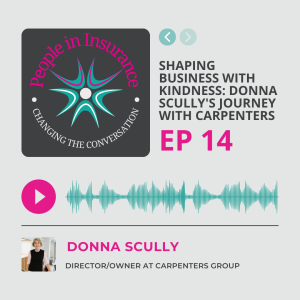
Tuesday Jul 23, 2024
Tuesday Jul 23, 2024
How can ethical business practices and a focus on fairness shape a company's culture and success?
What role does mentorship play in fostering the next generation of business leaders?
In this episode of Changing the Conversation, we're delighted to speak with Donna Scully, co-owner of Carpenters Group, about her journey in building an ethical business and her passion for mentoring young entrepreneurs.
Donna shares insights from her 30-year career in the insurance industry, discussing how she and her business partner John shaped Carpenters Group around core values of fairness, customer focus, and employee wellbeing. She reflects on the challenges and rewards of running a business with strong ethical principles, and how this approach has contributed to the company's growth and positive reputation.
Quote of the Episode
"We wanted to be really good at what we did, and we want to try and be proud of what we did and the way that we did it. And the way that we achieved it."
For Donna, success in business isn't just about financial results – it's about building something you can be proud of, treating customers and employees well, and making a positive impact. This philosophy has guided Carpenters Group from its early days to its current position as a major player in the insurance industry.
Key Takeaways
Donna emphasises the importance of investing in people and technology to deliver excellent customer service. She discusses how Carpenters Group has maintained its commitment to fairness and ethical practices even as it has grown to over 1,500 employees. Key elements of their approach include:
- Focusing on customer needs rather than short-term profits
- Investing in technology and training to improve service delivery
- Cultivating a no-blame culture that encourages innovation and problem-solving
- Promoting diversity and providing opportunities for career growth
- Balancing business needs with employee wellbeing and work-life balance
Donna also shares her perspective on mentoring, drawing from her own experiences of being supported in her career and her current efforts to guide young entrepreneurs. She stresses the value of taking opportunities, continuous learning, and developing both technical skills and emotional intelligence.
Best Moments
"I think for me and John, our view was, well, if you do it well, there's always room for you and there's always a place. So, we're going to give it a go."
"We try to run a no blame culture. I mean, I'm sure people... would say that's it's not perfect, but, you know, you try to say, you know, we get things wrong."
"One of the things I've always done since I was young and I don't remember not doing this, is I take every opportunity that comes. So, if someone says, do you want to try that? I'm in."
"Everything is about relationships. Everything is about communication. When you have bad relationships with bad communication, it doesn't matter how smart you are, you won't solve problems."
Key Quotes
“I felt like sometimes the customer focus was a bit lost and for me, one of the things that John and I decided early on was that we wanted to be really good at what we did, and we want to try and be proud of what we did and the way that we did it and the way that we achieved it. And what's funny is. You make money.” Donna Scully
“When something goes wrong, I think instead of going, oh my God, I need to lie on the floor and drink six bottles of wine and scream. I go, how are we going to fix this?” Donna Scully
“Thank God I'm not bad at my job because I'm so bad at other things. But then, that, that keeps your feet on the ground. You can't be great at everything.” Donna Scully
“Someone having that belief in you is very powerful.” Donna Scully
About the Guest
Donna Scully is the co-owner of Carpenters Group, a leading provider of insurance and legal services in the UK. With over 30 years of experience in the industry, Donna is known for her commitment to ethical business practices and her advocacy for diversity and inclusion in the workplace. She is also passionate about mentoring young entrepreneurs and supporting various charitable causes.
About the Host
Sarah Myerscough is the Chief Ideas Officer at Macaii, formerly Boston Tullis. She hosts/co-hosts several podcasts and is known for her knack in connecting with people. Sarah excels in bringing out the best for video, podcast, and live events, helping clients showcase the human side of their business.
Sarah is passionate about the evolving dynamics of the insurance industry and enjoys conversing with innovators, trailblazers, and long-term advocates of change.
Website: www.macaii.co.uk
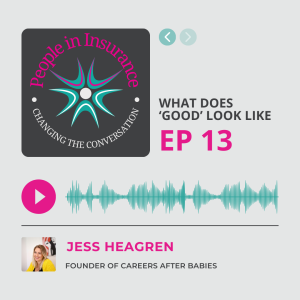
Tuesday Jul 16, 2024
Macaii S1 E013: What Does ‘Good’ Look Like? With Jess Heagren
Tuesday Jul 16, 2024
Tuesday Jul 16, 2024
How can insurance companies better support working parents in the years after they have children?
How should working parents endeavour to maintain a healthy work-life balance, and what practical measures should employers introduce to facilitate this?
Despite the implementation of some measures to mitigate this, having children can be something of a kick in the teeth to working parents. This is particularly true for new mothers who typically suffer the financial burden of potentially sacrificing their career and struggling to return to it later on. These issues, and much more, underpin the work of Jess Heagren, Founder of Careers After Babies, who we are delighted to be speaking with on this episode. Jess shares her personal experience of juggling her former insurance career with motherhood, and her insights into how employers can better support their staff through this challenging transition.
Quote of the Episode
“What does ‘good’ for us look like? It looks like happy, healthy, nurtured children who have one parent around most of the time, but we both get to have professional fulfilment as well. That's our version of ‘good’. That will look different for everybody else. I think all the time we go along with a very traditional societal view of what ‘good’ looks like, which might be, the amazing mum who's baking from home and doing all the art and home-schooling, while her husband goes out to work and earns £200 grand a year. I think that's completely incongruous to today's society, and the way we are as people.”
Ultimately, Jess is keen to reassure working parents that there is no need to strive for an idealised version of their lives, where their work, marital and parental responsibilities are always in perfect equilibrium. Instead, she suggests that parents should identify their own unique idea of what ‘good’ looks like to them, which will vary from couple to couple and family to family. She is sceptical of traditional notions of work-life balance or the gender disparity of mothers remaining at home whilst fathers go to work. Of course, for certain families this may be what ‘good’ looks like to them. However, it should not remain the standard, generalised model for all society to defer to, if we are to address continuing gender inequality in the workplace.
Key Takeaways
Many women in insurance and other related industries spend years building great careers, flying through the ranks and reaching the brink of huge success, only for it all to come crashing down when they have children. Many have to resort to part time work and experience little career progression, or quit their jobs entirely. The support infrastructure within professional services businesses for mothers and fathers alike, is woefully underequipped for modern parenting attitudes and ideas around work-life balance.
For Jess, the pandemic was a key lesson for all society that work-life balance as it currently functions is wholly inadequate for sustaining a happy, healthy workforce. The system is broken. Whilst endeavours to introduce flexible working solutions have been broadly introduced across our industry, there is still much work to be done. There is, however, an appetite from many organisations to put the work in. Workplaces can facilitate change in this regard, and must evaluate the ways in which they cater to working parents, and the support mechanisms on offer for them before and after they have children. There is a financial incentive for doing so also. Not only would such support infrastructure create a more broadly happy workforce, leading to greater productivity and thereby positively impacting businesses’ bottom line; it would also enable great talent to remain in the industry, even if at a reduced capacity for a certain number of years.
It is crucial, Jess argues, that workplaces foster a culture which encourages and enables people to be their true selves. Being authentic to who you are makes one a better leader, and a better individual contributor. The dynamic of living with a work and nonwork version of oneself, and navigating between the two on a day-to-day basis, is extremely psychologically damaging. It upholds a mindset that, in the workplace, one can never really switch off, or have a bad day. Organisations that place employee wellbeing in every regard at the centre of what they do have well-performing, and more loyal employees, leading to better results for the business overall.
Best Moments/Key Quotes
“When you work in insurance, I think because I'd spent my whole career in it, I never realized that that imbalance of women to men was unusual. It's not until you get older, and you get more senior, and you suddenly start to look around and think, ‘Well, hang on a minute. Nobody else in here really looks like me or sounds like me’. And you become increasingly aware of your femininity.”
“If we're to take a positive from the whole pandemic, it's that we all learned that we haven't quite got this work-life balance thing right. Whether we're looking at mental health, whether we're looking at physical health, whether we're looking at caring responsibilities, whether we're looking at general happiness levels, we don't have it right. The system is fundamentally broken because it doesn't enable that.”
“Barristers have one of the biggest gender pay gaps going. The average is 14%. I think theirs is about 29%. For me, there's a very linear relationship… we know that there's very little gender pay gap at 30 and it quadruples by the age of 40. The average age to have a child is 32. It's abundantly clear what happens in that time period to drive gender pay gap and inequality. It all comes down to how well we cater to working parents and how well we're supporting women and having children.”
‘I think we currently live in a time where being the best at everything has a set of expectations with it that aren’t healthy or achievable.’
Resources
Careers After Babies Report: https://www.careersafterbabies.org/careers-after-babies-report
Careers After Babies Accreditation: https://www.careersafterbabies.org/careers-after-babies-accreditation
The New York Times – Millennial Men Aren’t the Dads They Thought They’d Be: https://www.nytimes.com/2015/07/31/upshot/millennial-men-find-work-and-family-hard-to-balance.html
About the Guest
Jess Heagren is the Founder of Careers after Babies and the author of the so-called landmark Careers After Babies report published in 2023 which went viral on LinkedIn. Prior to this, she worked in the insurance industry as a corporate strategist, and in her last insurance position she was a Strategy and Distribution Director in the commercial part of DLG.
About the Host
Sarah Myerscough is the Chief Ideas Officer at Macaii, formerly Boston Tullis. She hosts/co-hosts several podcasts and is known for her knack in connecting with people. Sarah excels in bringing out the best for video, podcast, and live events, helping clients showcase the human side of their business.
Sarah is passionate about the evolving dynamics of the insurance industry and enjoys conversing with innovators, trailblazers, and long-term advocates of change.
Website: www.macaii.co.uk
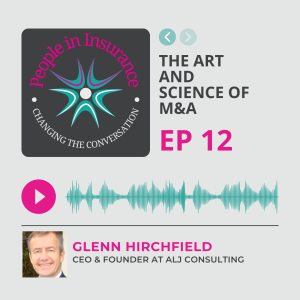
Tuesday Jul 09, 2024
Macaii S1 E012: The Art and Science of M&A: Insights from Glenn Hirchfield
Tuesday Jul 09, 2024
Tuesday Jul 09, 2024
In this episode of Changing the Conversation, we dive deep into the world of mergers and acquisitions (M&A) in the insurance industry with Glenn Hirchfield, founder of ALJ Consultancy. Glenn shares his extensive experience in M&A, offering valuable insights for both buyers and sellers in the insurance market. From the importance of cultural fit to the role of technology in valuations, Glenn provides a comprehensive overview of the current M&A landscape and offers advice for those considering selling their business.
Quote of the Episode:
"There is a flawed assumption that people are only interested in how much they can get for their business. And it's rarely, if ever, true that that's the primary driver for people." Glenn Hirchfield
Key Takeaways:
- The importance of cultural fit in M&A deals
- The value of honesty and transparency in the selling process
- The role of advisors in navigating the M&A landscape
- The impact of technology on business valuations
- The significance of soft skills and personal factors in M&A decisions
Best Moments/Key Quotes:
"Be yourself. Say things as they are about your business, because if you do the opposite and try and pretend that you are something that you're not, regrettably it gets found out."
"Please don't go into selling your firm thinking it's going to be easy. There are times when it's horrendous."
"We see life-changing amounts of money often getting into the hands of people that have lived quite frugally and who have really devoted their entire career to building up something."
Resources:
ALJ Consultancy website https://www.aljconsulting.com/
About the Guest: Glenn has over 30 years in financial services, with a vast network of senior contacts and experience from AIG, ACE, and senior UK broking roles. As CEO and founder of ALJ Consulting, he specialises in originating, structuring, and executing deals in the US and European insurance markets. He is also an operating partner at Apollo Global Management.
With deep expertise in M&A consulting and private equity, Glenn helps clients achieve strategic goals, providing tailored financial services and technology solutions. He assists private equity firms pre- and post-deal and helps sellers find buyers.
Glenn's capital-raising experience offers clients valuable M&A insights. He aims to deliver discreet, value-added services for client success in today's fast-paced market. Glenn is married with three children, is active in his local church, and enjoys golf and cricket.
About the Host
Sarah Myerscough is the Chief Ideas Officer at Macaii, formerly Boston Tullis. She hosts/co-hosts several podcasts and is known for her knack in connecting with people. Sarah excels in bringing out the best for video, podcast, and live events, helping clients showcase the human side of their business.
Sarah is passionate about the evolving dynamics of the insurance industry and enjoys conversing with innovators, trailblazers, and long-term advocates of change.
Website: www.macaii.co.uk
